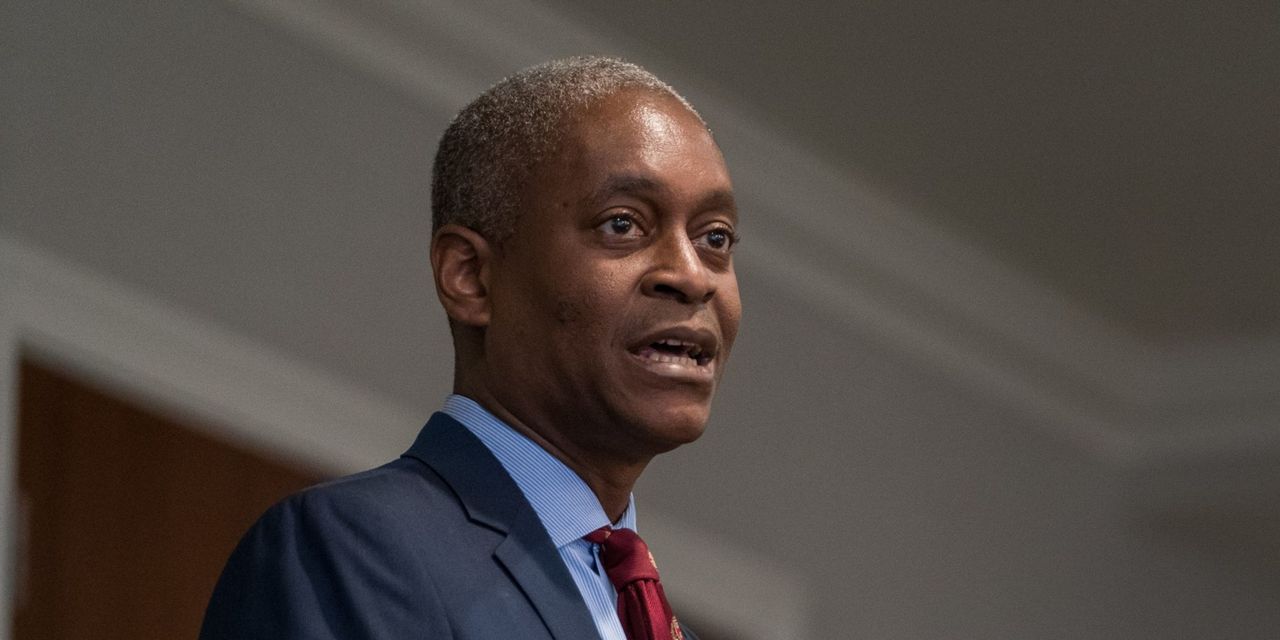The Federal Reserve can keep raising its benchmark rate this year at the fastest pace in nearly 30 years without causing a recession, Atlanta Fed President Raphael Bostic said Monday.
In a roundtable with reporters, Bostic noted the labor market added 372,000 jobs in June.
“What that tells me is there is enough momentum in the economy and enough ability for us to see a slowdown where we still wind up with positive job creation,” Bostic said.
“That doesn’t feel like a recession,” he added.
Since March, the Fed’s benchmark policy rate has increased by 150 basis points from the emergency-low level close to zero put in place when the pandemic started. Bostic said he supports raising it another 150 basis points this year, including another ultra-large, 75-basis-point hike at the next FOMC meeting in two weeks.
That would be the fastest pace of interest-rate hikes since 1994 into early 1995.
Bostic said even with the moves to date, the Fed’s benchmark rate — in the range of 1.5% to 1.75% — is still boosting growth. This is not applying “hard brakes” to the economy, he said.
Bostic said he has been encouraged with signs that the Fed’s moves have already started to slow the economy “in a fairly orderly way.”
“There haven’t been dramatic jumps that suggest we’re on the cusp of something pretty significant,” Bostic said.
So the Fed can keep moving rates up to a 3% rate, which Bostic said is “neutral,” neither boosting or slowing growth.
At that point, if the inflation numbers don’t improve, Bostic said he would be comfortable moving interest rates higher into “restrictive” territory, meaning that would put the brakes on growth.
Asked if he might ever support a full percentage-point rate hike — a popular discussion on Wall Street — Bostic didn’t rule it out.
Becoming more aggressive would be an option, Bostic said, if the data comes in “a lot worse than what we expected” — for instance if inflation moved higher or there was evidence that longer-run inflation expectations started to move up.
“I’m not expecting we’ll have to do” such a large move, he added.
Earlier Monday, Kansas City Fed President Esther George suggested the pace of rate hikes might be too aggressive.
There has been a “growing discussion of recession risk, and some forecasts are predicting interest-rate cuts as soon as next year,” George said in a speech to the Mid-America Labor/Management Conference.
“Such projections suggest to me that a rapid pace of rate increases brings about the risk of tightening policy more quickly than the economy and markets can adjust,” she said.
Stocks
DJIA,
SPX,
closed lower Monday on recession concerns, while the yield on the 10-year Treasury note
TMUBMUSD10Y,
slipped below 3%.
